Editors & Staff
All editors can be reached by emailing [email protected]
Editor-in-Chief
Jean-Laurent Casanova
0000-0002-7782-4169
![]() casanovalab.bsky.social
casanovalab.bsky.social  @casanova_lab
@casanova_lab
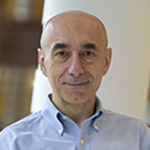 Jean-Laurent Casanova is the Levy Family Professor at The Rockefeller University (New York), a Howard Hughes Medical Institute Investigator, and Head of the St. Giles Laboratory of Human Genetics of Infectious Diseases, Rockefeller Branch. He is also a Professor at the Necker Hospital for Sick Children, Paris Cité University, where the Necker Branch of the laboratory is located. Jean-Laurent received his PhD from the Pierre et Marie Curie Paris University in 1992 after being trained at the Pasteur Institute in Paris and the Ludwig Institute for Cancer Research in Lausanne. He received his MD in 1995, following a residency in pediatrics in Paris. He then completed a clinical fellowship in the pediatric immunology−hematology unit of the Necker Hospital for Sick Children in Paris. In 1999, he was appointed a Professor of Pediatrics at Necker, where, with Laurent Abel, he co-founded and co-directed the Laboratory of Human Genetics of Infectious Diseases. He was recruited by The Rockefeller University in 2008 and appointed an Investigator at the Howard Hughes Medical Institute in 2014. Work in his laboratory focuses on identifying monogenic disorders and their autoimmune phenocopies, rare or common, that selectively compromise immunity to a single infection in otherwise healthy children and adults. Jean-Laurent became an Academic Editor of the Journal of Experimental Medicine in 2006.
Jean-Laurent Casanova is the Levy Family Professor at The Rockefeller University (New York), a Howard Hughes Medical Institute Investigator, and Head of the St. Giles Laboratory of Human Genetics of Infectious Diseases, Rockefeller Branch. He is also a Professor at the Necker Hospital for Sick Children, Paris Cité University, where the Necker Branch of the laboratory is located. Jean-Laurent received his PhD from the Pierre et Marie Curie Paris University in 1992 after being trained at the Pasteur Institute in Paris and the Ludwig Institute for Cancer Research in Lausanne. He received his MD in 1995, following a residency in pediatrics in Paris. He then completed a clinical fellowship in the pediatric immunology−hematology unit of the Necker Hospital for Sick Children in Paris. In 1999, he was appointed a Professor of Pediatrics at Necker, where, with Laurent Abel, he co-founded and co-directed the Laboratory of Human Genetics of Infectious Diseases. He was recruited by The Rockefeller University in 2008 and appointed an Investigator at the Howard Hughes Medical Institute in 2014. Work in his laboratory focuses on identifying monogenic disorders and their autoimmune phenocopies, rare or common, that selectively compromise immunity to a single infection in otherwise healthy children and adults. Jean-Laurent became an Academic Editor of the Journal of Experimental Medicine in 2006.
Scientific advisory boards/consulting: ADMA, Elixiron Immunotherapeutics, KymeraTX, Micoy Therapeutics.
Editorial boards: Journal of Experimental Medicine, Journal of Human Immunity
Patent applications: Inventor on a pending patent application that covers diagnosis of susceptibility to, and treatment of, viral disease and viral vaccines, including Covid-19 and vaccine-associated diseases. This pending patent application is currently not licensed.
Funding sources: the Casanova lab receives research grants from the National Institutes of Health, the American Lung Association, the Lupus Research Alliance, and the French National Research Agency (ANR).
Deputy Editor
Megan Cooper
0000-0002-5696-172X
![]() macattacklab.bsky.social
macattacklab.bsky.social
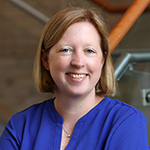 Megan Cooper is the Anthony R. French, MD, PhD, Endowed Professor of Pediatrics and Director of the Division of Pediatric Rheumatology and Immunology at Washington University in St. Louis, where she is a physician scientist. Megan earned her MD, PhD from The Ohio State University, where she worked with Michael Caligiuri studying human NK cell biology. She trained as a pediatrician and pediatric rheumatologist at St. Louis Children’s Hospital and Washington University in St. Louis, followed by postdoctoral studies with Wayne Yokoyama, where she identified memory-like properties of NK cells. Her clinical work focuses on immune dysregulation syndromes, and her laboratory now focuses on investigating the genetic and immunologic mechanisms of these diseases.
Megan Cooper is the Anthony R. French, MD, PhD, Endowed Professor of Pediatrics and Director of the Division of Pediatric Rheumatology and Immunology at Washington University in St. Louis, where she is a physician scientist. Megan earned her MD, PhD from The Ohio State University, where she worked with Michael Caligiuri studying human NK cell biology. She trained as a pediatrician and pediatric rheumatologist at St. Louis Children’s Hospital and Washington University in St. Louis, followed by postdoctoral studies with Wayne Yokoyama, where she identified memory-like properties of NK cells. Her clinical work focuses on immune dysregulation syndromes, and her laboratory now focuses on investigating the genetic and immunologic mechanisms of these diseases.
Scientific advisory boards/other: Medical Advisory Board, Immune Deficiency Foundation
Consulting: none current; in the last 12 months: advisory board Sumitomo.
Funding sources: National Institutes of Health, Jeffrey Modell Foundation, Children’s Discovery Institute at St. Louis Children’s Hospital.
Associate Editors
Dusan Bogunovic
0000-0002-9277-3232
![]() bogunoviclab.bsky.social
bogunoviclab.bsky.social  @BogunovicLab
@BogunovicLab
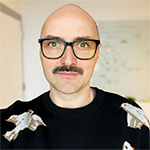 Dusan Bogunovic is a Professor at the Columbia University Medical Center, New York, NY, USA. Dusan received his PhD from the New York University Medical School in 2010. He then completed his postdoctoral fellowship at Rockefeller University in 2013. In 2014 he was appointed an Assistant Professor at the Icahn School of Medicine at Mount Sinai, where he rose to the ranks of Professor with tenure in 2021. In 2024 he was recruited by Columbia University, where he is the Vice Chair for basic research in the Department of Pediatrics and Director of the Center for Genetic Errors of Immunity. Work in his laboratory focuses on identifying genetic principles of immune system function. He has identified USP18 deficiency and TBK1 deficiency, to name a few, and how transcriptional silencing of one allele of an autosome can contribute to variable disease penetrance. Dusan became an Associate Editor of the Journal of Human Immunity in 2025.
Dusan Bogunovic is a Professor at the Columbia University Medical Center, New York, NY, USA. Dusan received his PhD from the New York University Medical School in 2010. He then completed his postdoctoral fellowship at Rockefeller University in 2013. In 2014 he was appointed an Assistant Professor at the Icahn School of Medicine at Mount Sinai, where he rose to the ranks of Professor with tenure in 2021. In 2024 he was recruited by Columbia University, where he is the Vice Chair for basic research in the Department of Pediatrics and Director of the Center for Genetic Errors of Immunity. Work in his laboratory focuses on identifying genetic principles of immune system function. He has identified USP18 deficiency and TBK1 deficiency, to name a few, and how transcriptional silencing of one allele of an autosome can contribute to variable disease penetrance. Dusan became an Associate Editor of the Journal of Human Immunity in 2025.
Scientific advisory boards/consulting/ownership: Volasta consultant, and founder and part owner of Lab11 Therapeutics Inc.
Patents: Inventor on a patent application that covers how combination of select genes can provide broad spectrum antiviral protection.
Funding sources: the National Institutes of Health.
Petter Brodin
0000-0002-8103-0046
![]() petterbrodin.bsky.social
petterbrodin.bsky.social
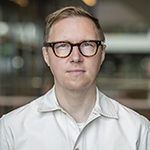 Petter Brodin is a Garfield Weston Chair, professor of pediatric immunology and honorary consultant in pediatric immunology at Imperial College London, UK, and at Karolinska Institutet, Stockholm, Sweden. The Brodin lab develops and applies systems-level analysis methods to understand human immune system variation and regulation in health and disease. The group is particularly interested in the developing immune system in children and the importance of immune–microbe interactions in shaping human immune systems.
Petter Brodin is a Garfield Weston Chair, professor of pediatric immunology and honorary consultant in pediatric immunology at Imperial College London, UK, and at Karolinska Institutet, Stockholm, Sweden. The Brodin lab develops and applies systems-level analysis methods to understand human immune system variation and regulation in health and disease. The group is particularly interested in the developing immune system in children and the importance of immune–microbe interactions in shaping human immune systems.
Scientific advisory boards/consulting/ownership: Petter is a member of the advisory board of Cell (Cell Press), executive board member of Kancera AB and Cytodelics AB, and scientific advisor to Pixelgen Technologies AB (Stockholm, Sweden), Sention Health AB (Stockholm, Sweden), Helaina Inc. (New York, USA), Scailyte AG (Basel, Switzerland), and Oxford Immune Algorithmics (Reading, UK).
Andy Gennery
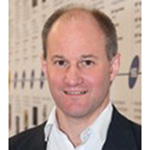 Andrew R. Gennery is a Professor in Pediatric Immunology and Hematopoietic Stem Cell Transplantation (HSCT) at Newcastle University (Newcastle, UK) and Honorary Consultant for the Northern National HSCT Unit for IEI (inborn errors of immunity) at Great North Children’s Hospital, Newcastle. He spent a year working at the Necker Hospital, Paris, involved in the discovery of cytidine deaminase. Research interests include immunoreconstitution following HSCT for IEI, long-term outcomes of transplantation for IEI, and appropriate treatment of DNA repair disorders. He has established ECP for treatment of pediatric graft-versus-host disease and discovered mechanistic insights relating to ECP mode of action.
Andrew R. Gennery is a Professor in Pediatric Immunology and Hematopoietic Stem Cell Transplantation (HSCT) at Newcastle University (Newcastle, UK) and Honorary Consultant for the Northern National HSCT Unit for IEI (inborn errors of immunity) at Great North Children’s Hospital, Newcastle. He spent a year working at the Necker Hospital, Paris, involved in the discovery of cytidine deaminase. Research interests include immunoreconstitution following HSCT for IEI, long-term outcomes of transplantation for IEI, and appropriate treatment of DNA repair disorders. He has established ECP for treatment of pediatric graft-versus-host disease and discovered mechanistic insights relating to ECP mode of action.
He is a member of European Society for Immunodeficiencies (ESID) and EBMT, recently chaired ESID/EBMT Inborn Errors Working Party, ESID Clinical Working Party, European Reference Networks-RITA Guidelines Working Party, and Center for International Blood & Marrow Transplant Research Primary Immune Deficiencies, Inborn Errors of Metabolism, and Other NMMD Working Committee. He has published >430 papers on primary immunodeficiency, co-authored multi-center publications on outcomes of cohorts of children with IEI following HSCT, and contributed relevant chapters in major textbooks. He is clinical lead for the severe combined immunodeficiency NBS pilot in England.
Appointments: Sir James Spence Professor of Child Health (January 2020–present), Professor/Honorary Consultant in Pediatric Immunology & Hematopoietic Stem Cell Transplantation, Institute of Cellular Medicine, Newcastle University (June 2018–present)
Elena Hsieh
0000-0003-3969-6597
 @hsiehelena
@hsiehelena
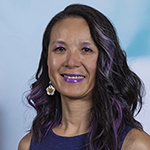 Elena Hsieh earned her MD degree from University of California, San Francisco in 2008. She completed a residency in pediatrics at the University of California, Los Angeles in 2011, and a fellowship in Allergy and Immunology at Stanford University in 2014. During her fellowship she worked in Dr. Garry Nolan’s laboratory studying pediatric lupus. She continued her research and clinical work at Stanford University as an Instructor for an additional year. In 2015, she joined the faculty at the University of Colorado School of Medicine, jointly affiliated with the Children’s Hospital Colorado. She is currently an Associate Professor of the Department of Immunology and Microbiology, and Pediatrics, Section of Allergy and Immunology. She is the Director of the Jeffrey Modell Center for Primary Immunodeficiencies, and co-directs the Severe Combined Immunodeficiency Newborn Screen Program, both of which constitute the foundation of the immunodeficiency program at Children’s Hospital Colorado. She is also the Director of University of Colorado as a Federation of Clinical Immunology Societies Center of Excellence. The Hsieh lab addresses mechanistic and translational questions in human immunology to enable a deeper understanding of normal immune function, and dysregulated immune processes in immunodeficiency, autoimmunity, and the overlap between the two.
Elena Hsieh earned her MD degree from University of California, San Francisco in 2008. She completed a residency in pediatrics at the University of California, Los Angeles in 2011, and a fellowship in Allergy and Immunology at Stanford University in 2014. During her fellowship she worked in Dr. Garry Nolan’s laboratory studying pediatric lupus. She continued her research and clinical work at Stanford University as an Instructor for an additional year. In 2015, she joined the faculty at the University of Colorado School of Medicine, jointly affiliated with the Children’s Hospital Colorado. She is currently an Associate Professor of the Department of Immunology and Microbiology, and Pediatrics, Section of Allergy and Immunology. She is the Director of the Jeffrey Modell Center for Primary Immunodeficiencies, and co-directs the Severe Combined Immunodeficiency Newborn Screen Program, both of which constitute the foundation of the immunodeficiency program at Children’s Hospital Colorado. She is also the Director of University of Colorado as a Federation of Clinical Immunology Societies Center of Excellence. The Hsieh lab addresses mechanistic and translational questions in human immunology to enable a deeper understanding of normal immune function, and dysregulated immune processes in immunodeficiency, autoimmunity, and the overlap between the two.
Scientific consulting: Pharming, Sumitomo Corporation of America.
Funding sources: National Institutes of Health, Lupus Research Alliance, Arthritis Foundation, Boettcher Foundation, Childhood Arthritis and Rheumatology Research Alliance, Jeffrey Modell Foundation.
Isabelle Meyts
0000-0003-1214-0302
 @IsabelleMeyts
@IsabelleMeyts
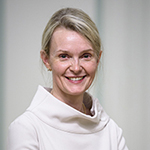 Isabelle Meyts is a full Professor at the Department of Microbiology, Immunology and Transplantation at KU Leuven, Belgium, and Head of the Laboratory for Inborn Errors of Immunity. She is also the Clinic Head of the Unit for Primary Immunodeficiencies at the University Hospitals Leuven. Isabelle received her MD degree in 1999 at KU Leuven and her PhD degree at the Laboratory for Clinical Immunology KU Leuven in 2007. She trained as a pediatrician and acquired certification in pediatric hemato-oncology. She built the primary immunodeficiency unit at University Hospitals Leuven, offering genetic and immunological diagnosis as well as treatment including hematopoietic stem cell transplantation. She was the President of the European Society for Immunodeficiencies from 2016 to 2022 and is the current Chair of the Inborn Errors Committee of the International Union of Immunological Societies. Isabelle has served on international review panels for National Institutes of Health, the Jeffrey Modell Foundation, and the French Agence nationale de la recherche as well as the Fondation pour la Recherche Médicale. Work in her laboratory focuses on unraveling novel variants in known genes underlying inborn errors of immunity as well as unraveling novel gene defects. In addition, the European Research Council funded research focuses on the pathophysiology of human ADA2 deficiency.
Isabelle Meyts is a full Professor at the Department of Microbiology, Immunology and Transplantation at KU Leuven, Belgium, and Head of the Laboratory for Inborn Errors of Immunity. She is also the Clinic Head of the Unit for Primary Immunodeficiencies at the University Hospitals Leuven. Isabelle received her MD degree in 1999 at KU Leuven and her PhD degree at the Laboratory for Clinical Immunology KU Leuven in 2007. She trained as a pediatrician and acquired certification in pediatric hemato-oncology. She built the primary immunodeficiency unit at University Hospitals Leuven, offering genetic and immunological diagnosis as well as treatment including hematopoietic stem cell transplantation. She was the President of the European Society for Immunodeficiencies from 2016 to 2022 and is the current Chair of the Inborn Errors Committee of the International Union of Immunological Societies. Isabelle has served on international review panels for National Institutes of Health, the Jeffrey Modell Foundation, and the French Agence nationale de la recherche as well as the Fondation pour la Recherche Médicale. Work in her laboratory focuses on unraveling novel variants in known genes underlying inborn errors of immunity as well as unraveling novel gene defects. In addition, the European Research Council funded research focuses on the pathophysiology of human ADA2 deficiency.
Editorial boards: Frontiers in Immunology.
Patents: Inventor on a pending patent application that covers modulator therapy for human ADA2 deficiency.
Funding sources: Isabelle has received a Clinical Researcher grant from Fonds voor Wetenschappelijk Onderzoek (FWO) Vlaanderen, and has received research grants from the FWO Vlaanderen, the Jeffrey Modell Foundation, and the European Research Council (ERC-Start Grant 2020 MORE2ADA2 and proof of concept grant 2024). Isabelle founded a charity “KID Fonds” and holds the CSL-Behring Chair in Primary Immunodeficiencies at KU Leuven.
Tomohiro Morio
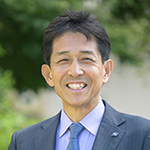 Tomohiro Morio is a Distinguished Research Professor at the Laboratory of Immunology and Molecular Medicine and Executive Vice President for International Relations at the Institute of Science Tokyo. He received his MD and PhD in medicine from Tokyo Medical and Dental University (TMDU), where he studied the immunological basis of inborn errors of immunity (IEI). After postdoctoral studies with Raif Geha at Boston Children’s Hospital, he returned to Japan and continued his research on the molecular and immunological mechanisms of IEI, focusing on disorders with antibody deficiencies and class switch defects. His current studies include elucidating the detailed molecular pathogenesis of IEI with heterologous variants in transcription factors, which can be any combination of haploinsufficiency, heteromeric interference, negative dominance, and neomorph. His research also includes the development of a novel error-free homologous recombination-based gene correction therapy for IEI. He is Chairman of the Evaluation Committee for Regenerative Medicine and Gene Therapy and the Evaluation Committee for Vaccine Side Effects of the Ministry of Health, Labour and Welfare (MHLW) in Japan.
Tomohiro Morio is a Distinguished Research Professor at the Laboratory of Immunology and Molecular Medicine and Executive Vice President for International Relations at the Institute of Science Tokyo. He received his MD and PhD in medicine from Tokyo Medical and Dental University (TMDU), where he studied the immunological basis of inborn errors of immunity (IEI). After postdoctoral studies with Raif Geha at Boston Children’s Hospital, he returned to Japan and continued his research on the molecular and immunological mechanisms of IEI, focusing on disorders with antibody deficiencies and class switch defects. His current studies include elucidating the detailed molecular pathogenesis of IEI with heterologous variants in transcription factors, which can be any combination of haploinsufficiency, heteromeric interference, negative dominance, and neomorph. His research also includes the development of a novel error-free homologous recombination-based gene correction therapy for IEI. He is Chairman of the Evaluation Committee for Regenerative Medicine and Gene Therapy and the Evaluation Committee for Vaccine Side Effects of the Ministry of Health, Labour and Welfare (MHLW) in Japan.
Scientific advisory boards/consulting: National Center for Childhood Health and Development, Program Supervisor of AMED (Japan Agency for Medical Research and Development), President of Japanese Society of Immunodeficiency and Autoinflammatory Diseases (-2025).
Editorial boards: Journal of Human Immunity, Journal of Allergy and Clinical Immunology, Frontiers in Immunology, Immunological Medicine.
Patents: Co-inventor of the patent held with TMDU on “Application of synovium-derived mesenchymal stem cells (MSCs) for cartilage or meniscus regeneration.”
Grant sources: the Morio lab receives funding from AMED, MHLW, and Japan Society of the Promotion of Science.
Cecilia Poli
0000-0001-6817-0573
![]() polilab.bsky.social
polilab.bsky.social  @cecipolih
@cecipolih
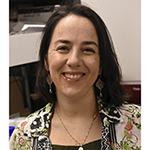 Dr. Cecilia Poli is a Pediatric Immunologist and Rheumatologist specializing in the study of primary immunodeficiency diseases (PIDD), with a particular focus on immune dysregulation and autoinflammatory disorders. She completed her PhD in Immunology at Baylor College of Medicine under the mentorship of Dr. Jordan Orange and currently leads the Translational Immunology Program at the Faculty of Medicine, Clínica Alemana-Universidad del Desarrollo in Santiago, Chile. Cecilia’s work integrates clinical practice with translational research, aiming to elucidate the genetic defects and molecular mechanisms underlying PIDD to improve patient outcomes. She also serves as Secretary of the Latin American Society for Immunodeficiencies, contributing to the advancement and education in inborn errors of immunity across the region.
Dr. Cecilia Poli is a Pediatric Immunologist and Rheumatologist specializing in the study of primary immunodeficiency diseases (PIDD), with a particular focus on immune dysregulation and autoinflammatory disorders. She completed her PhD in Immunology at Baylor College of Medicine under the mentorship of Dr. Jordan Orange and currently leads the Translational Immunology Program at the Faculty of Medicine, Clínica Alemana-Universidad del Desarrollo in Santiago, Chile. Cecilia’s work integrates clinical practice with translational research, aiming to elucidate the genetic defects and molecular mechanisms underlying PIDD to improve patient outcomes. She also serves as Secretary of the Latin American Society for Immunodeficiencies, contributing to the advancement and education in inborn errors of immunity across the region.
Anne Puel
0000-0003-2603-0323
![]() anne-puel.bsky.social
anne-puel.bsky.social  @anne_puel
@anne_puel
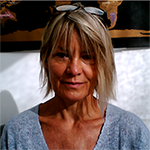 Dr. Anne Puel serves as a group leader in the Laboratory of Human Genetics of Infectious Diseases at the Imagine Institute, located in Necker Hospital for Sick Children in Paris, France. She is also a Guest Investigator at The Rockefeller University in New York, USA. Anne is specialized in the human genetic and immunological bases of infectious diseases, particularly focusing on inborn errors of immunity (IEI) and neutralizing autoantibodies (auto-Abs) against cytokines. Her significant contributions include the identification and characterization of several inborn errors of the canonical NF-κB signaling pathway or auto-Abs that neutralize IL-6, associated with an increased susceptibility to pyogenic bacterial diseases; IEI of the IL-17A/F–mediated immunity or neutralizing auto-Abs against IL-17A/F in patients with superficial isolated or syndromic fungal diseases (chronic mucocutaneous candidiasis); inborn errors of CARD9 or auto-Abs against GM-CSF in some invasive fungal diseases; and more recently, the critical role of neutralizing auto-Abs against type I IFNs (AAN-IFN-I) in a variety of severe viral diseases, such as critical COVID-19 or influenza pneumonia, West Nile virus or tick-borne encephalitis, or other rare arboviral diseases. She contributed to show that these AAN-IFN-I are present in the general population, with a prevalence sharply increasing after the age of 65, suggesting that over 100 million individuals worldwide carry these auto-Abs. Furthermore, her findings reveal that AAN-IFN-I can result from inborn errors of central T cell tolerance.
Dr. Anne Puel serves as a group leader in the Laboratory of Human Genetics of Infectious Diseases at the Imagine Institute, located in Necker Hospital for Sick Children in Paris, France. She is also a Guest Investigator at The Rockefeller University in New York, USA. Anne is specialized in the human genetic and immunological bases of infectious diseases, particularly focusing on inborn errors of immunity (IEI) and neutralizing autoantibodies (auto-Abs) against cytokines. Her significant contributions include the identification and characterization of several inborn errors of the canonical NF-κB signaling pathway or auto-Abs that neutralize IL-6, associated with an increased susceptibility to pyogenic bacterial diseases; IEI of the IL-17A/F–mediated immunity or neutralizing auto-Abs against IL-17A/F in patients with superficial isolated or syndromic fungal diseases (chronic mucocutaneous candidiasis); inborn errors of CARD9 or auto-Abs against GM-CSF in some invasive fungal diseases; and more recently, the critical role of neutralizing auto-Abs against type I IFNs (AAN-IFN-I) in a variety of severe viral diseases, such as critical COVID-19 or influenza pneumonia, West Nile virus or tick-borne encephalitis, or other rare arboviral diseases. She contributed to show that these AAN-IFN-I are present in the general population, with a prevalence sharply increasing after the age of 65, suggesting that over 100 million individuals worldwide carry these auto-Abs. Furthermore, her findings reveal that AAN-IFN-I can result from inborn errors of central T cell tolerance.
Neil Romberg
0000-0002-1881-5318
![]() romberglab.bsky.social
romberglab.bsky.social
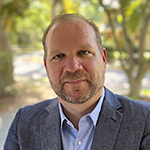 Dr. Neil Romberg (Children's Hospital of Philadelphia, Philadelphia, PA) investigates the regulatory mechanisms enabling our immune systems to fight infections without injuring ourselves. He is particularly interested in the immune systems of patients who are susceptible to both life-threatening infections and autoimmune diseases due to inborn errors of immunity. Comprehensive molecular insights into these rare diseases may enable rationale development of targeted therapies for affected patients and also potentially patients with more common immunologic disorders.
Dr. Neil Romberg (Children's Hospital of Philadelphia, Philadelphia, PA) investigates the regulatory mechanisms enabling our immune systems to fight infections without injuring ourselves. He is particularly interested in the immune systems of patients who are susceptible to both life-threatening infections and autoimmune diseases due to inborn errors of immunity. Comprehensive molecular insights into these rare diseases may enable rationale development of targeted therapies for affected patients and also potentially patients with more common immunologic disorders.
Vijay Sankaran
0000-0003-0044-443X
![]() bloodgenes.bsky.social
bloodgenes.bsky.social
 @bloodgenes
@bloodgenes
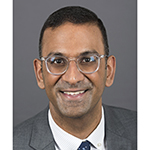 Vijay G. Sankaran, MD, PhD is the Jan Ellen Paradise, MD Professor of Pediatrics at Harvard Medical School (Cambridge, MA), an Investigator of the Howard Hughes Medical Institute, an Attending Physician in the Dana-Farber/Boston Children’s Cancer and Blood Disorders Center, and an Associate Member of the Broad Institute. Vijay’s lab seeks to understand the influence of human genetic variation on blood and immune cell production in health and disease. Their work has resulted in a number of therapies for blood diseases, including work that led to the development of Casgevy for sickle cell disease and β-thalassemia. Vijay has received a number of awards for his work, including the 2019 Seldin-Smith Award for Pioneering Research from the American Society of Clinical Investigation, the 2022 E. Mead Johnson Award from the Society for Pediatric Research, and 2024 Trailblazer Prize from the Foundation for the National Institutes of Health. He is an elected member of the Association of American Physicians and the American Society of Clinical Investigation.
Vijay G. Sankaran, MD, PhD is the Jan Ellen Paradise, MD Professor of Pediatrics at Harvard Medical School (Cambridge, MA), an Investigator of the Howard Hughes Medical Institute, an Attending Physician in the Dana-Farber/Boston Children’s Cancer and Blood Disorders Center, and an Associate Member of the Broad Institute. Vijay’s lab seeks to understand the influence of human genetic variation on blood and immune cell production in health and disease. Their work has resulted in a number of therapies for blood diseases, including work that led to the development of Casgevy for sickle cell disease and β-thalassemia. Vijay has received a number of awards for his work, including the 2019 Seldin-Smith Award for Pioneering Research from the American Society of Clinical Investigation, the 2022 E. Mead Johnson Award from the Society for Pediatric Research, and 2024 Trailblazer Prize from the Foundation for the National Institutes of Health. He is an elected member of the Association of American Physicians and the American Society of Clinical Investigation.
Scientific advisory boards: Ensoma.
Editorial boards: Journal of Experimental Medicine (Advisory Editor).
Funding sources: National Institutes of Health, Alex's Lemonade Stand Foundation, Howard Hughes Medical Institute, Bill and Melinda Gates Foundation.
Helen Su
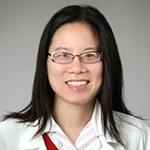 Dr. Helen Su is a Senior Investigator in the Intramural Research Program of the National Institute of Allergy and Infectious Diseases (NIAID), National Institutes of Health, in Bethesda, MD, USA. She obtained her MD and PhD degrees at Brown University, the latter with Dr. Christine Biron. This was followed by clinical training in Pediatrics at St. Louis Children’s Hospital/Washington University and Allergy and Immunology at NIAID, as well as a postdoctoral fellowship with Dr. Michael Lenardo. Her research program aims to understand the molecular regulation of human immunity to virus infections, in both normal and diseased states. She studies patients having inherited combined immunodeficiencies–immunodysregulatory disorders, with broad susceptibility to viral skin infections. More recently, she has also studied inherited defects in innate immunity with susceptibility to respiratory tract viruses, including SARS-CoV-2. Besides improving diagnosis and treatment of patients, her work has provided fundamental insights into the normal physiologic regulation of human immunity.
Dr. Helen Su is a Senior Investigator in the Intramural Research Program of the National Institute of Allergy and Infectious Diseases (NIAID), National Institutes of Health, in Bethesda, MD, USA. She obtained her MD and PhD degrees at Brown University, the latter with Dr. Christine Biron. This was followed by clinical training in Pediatrics at St. Louis Children’s Hospital/Washington University and Allergy and Immunology at NIAID, as well as a postdoctoral fellowship with Dr. Michael Lenardo. Her research program aims to understand the molecular regulation of human immunity to virus infections, in both normal and diseased states. She studies patients having inherited combined immunodeficiencies–immunodysregulatory disorders, with broad susceptibility to viral skin infections. More recently, she has also studied inherited defects in innate immunity with susceptibility to respiratory tract viruses, including SARS-CoV-2. Besides improving diagnosis and treatment of patients, her work has provided fundamental insights into the normal physiologic regulation of human immunity.
Funding sources: Division of Intramural Research, National Institute of Allergy and Infectious Diseases, National Institutes of Health.
Stuart Tangye
0000-0002-5360-5180
 @Tangye_lab
@Tangye_lab  @stutangye
@stutangye
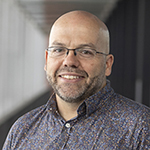 Stuart Tangye leads the Immunology & Immunodeficiency Lab at the Garvan Institute of Medical Research (Australia), where he is a Senior Principal Research Fellow, and is a Professor (conjoint) in the Faculty of Medicine & Health, University of New South Wales Sydney.
Stuart Tangye leads the Immunology & Immunodeficiency Lab at the Garvan Institute of Medical Research (Australia), where he is a Senior Principal Research Fellow, and is a Professor (conjoint) in the Faculty of Medicine & Health, University of New South Wales Sydney.
He has 25 years of experience in the fields of human cellular and molecular immunology and inborn errors of immunity. His research focuses on the biology of human lymphocytes in health and disease and understanding how defects in single genes result in immune dysregulation. His research outcomes include elucidating critical roles for specific genes in human lymphocyte differentiation, determining intrinsic versus extrinsic defects in lymphocyte function in distinct immune dysregulatory conditions, and delineating functional requirements for effective host defense against infectious bacterial, viral, and fungal diseases.
He has published approximately 300 peer-reviewed articles, holds positions on the editorial boards of Journal of Experimental Medicine and Blood, and is a member and previous chair of the International Union of Immunological Societies Expert Committee of Inborn Errors of Immunity. He established in 2015 and leads the Clinical Immunogenomics Research Consortium Australasia. His contributions to research have been recognized by being awarded the 2011 Gottschalk Medal (Australian Academy of Sciences), Fulbright Senior Fellowship (2015), the Clinical Immunology Society (USA) President’s Award (2019), Australian Museum Eureka Prize for Scientific Research (2024), and the NSW Premier's Prizes for Science & Engineering (Excellence in Medical Biological Sciences), and being elected to the Australian Academy of Health and Medical Sciences (2023).
Editorial boards: Advisory Editor for Journal of Experimental Medicine (2011–present), Associate Editor for Frontiers Immunology (2011–present), editorial board of Blood (2025–present).
Consulting: Pharming Group NV, regarding rollout of their drug leniolisib for the treatment of several inborn errors of immunity.
Advisory boards: Medical Advisory Panel, International Patient Organization for Primary Immunodeficiencies (2020–present), Pharming Global Advisory Board for the use of leniolisib to treat activated PI3K-delta syndrome.
Funding sources: National Health and Medical Research Council of Australia, Medical Research Future Fund (Australian Government), Job Research Foundation (USA), University of New South Wales (Sydney, Australia).
Stuart Turvey
0000-0003-1599-1065
 @TurveyLab
@TurveyLab
 Stuart Turvey, MBBS DPhil FRCPC, is a Pediatric Clinical Immunologist, a Professor of Pediatrics at The University of British Columbia (Canada), and holder of the Tier1 Canada Research Chair in Pediatric Precision Health. As a practising pediatric immunologist based at BC Children’s Hospital, Stuart’s research program responds to major challenges in contemporary pediatric medicine. Specifically, his research focuses on childhood immune deficiency diseases and disorders of immune dysfunction including asthma, allergies, and autoimmunity. Stuart is internationally recognized for his research in developing precision health-based strategies to address childhood asthma and pediatric immune system disorders, and he is a highly effective mentor for the next generation of child health clinician-scientists.
Stuart Turvey, MBBS DPhil FRCPC, is a Pediatric Clinical Immunologist, a Professor of Pediatrics at The University of British Columbia (Canada), and holder of the Tier1 Canada Research Chair in Pediatric Precision Health. As a practising pediatric immunologist based at BC Children’s Hospital, Stuart’s research program responds to major challenges in contemporary pediatric medicine. Specifically, his research focuses on childhood immune deficiency diseases and disorders of immune dysfunction including asthma, allergies, and autoimmunity. Stuart is internationally recognized for his research in developing precision health-based strategies to address childhood asthma and pediatric immune system disorders, and he is a highly effective mentor for the next generation of child health clinician-scientists.
Editorial Boards: Frontiers in Immunology, Journal of Clinical Immunology.
Funding Sources: Turvey lab receives research funding from a variety of sources including Canadian Institutes for Health Research, Canada Research Chairs, Genome Canada, Genome British Columbia, BC Children’s Hospital Foundation, and Jeffrey Modell Foundation.
Governing Boards: Stuart serves on the Institute Advisory Board of the Canadian Institutes for Health Research Institute of Infection and Immunity.
Shen-Ying Zhang
0000-0002-9449-3672
![]() shenyingzhang1.bsky.social
shenyingzhang1.bsky.social
 @ShenYingZhang1
@ShenYingZhang1
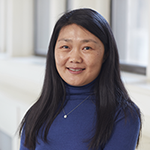 Shen-Ying Zhang, MD, PhD, is an Associate Professor at The Rockefeller University (New York), and an INSERM senior researcher (DR1) at the Imagine Institute in France. She is a physician scientist by training. After completing her medical study at Shanghai Fudan University in China, she pursued her interest in the investigations of immunopathogenesis of infectious diseases by joining the Laboratory of Human Genetics of Infectious Diseases as a postdoctoral fellow, where she also obtained her PhD of Immunology and Genetics under the mentorship of Prof. Jean-Laurent Casanova at Paris Descartes University in France. Since 2008, she has led a team working on human genetic and immunological determinants of severe viral diseases in the two branches of the Laboratory of Human Genetics of Infectious Diseases in the USA and in France (https://www.hgid.org). She has made substantial contributions to our understanding of human inborn errors of immunity predisposing to severe viral infections, mainly encephalitis caused by HSV-1 and other viruses. She played a major role in the discovery of the various monogenic defects underlying childhood HSV-1 encephalitis, via impairment of known TLR3-IFN–mediated or new previously unknown molecular mechanisms of cell-intrinsic immunity in brain neurons. Defective organ-specific cell-intrinsic immunity, as opposed to hematopoietic cell immunity, can thus result in susceptibility to severe viral infection of a specific organ in humans. She is a member of the Henry Kunkel Society and the American Society of Clinical Investigation.
Shen-Ying Zhang, MD, PhD, is an Associate Professor at The Rockefeller University (New York), and an INSERM senior researcher (DR1) at the Imagine Institute in France. She is a physician scientist by training. After completing her medical study at Shanghai Fudan University in China, she pursued her interest in the investigations of immunopathogenesis of infectious diseases by joining the Laboratory of Human Genetics of Infectious Diseases as a postdoctoral fellow, where she also obtained her PhD of Immunology and Genetics under the mentorship of Prof. Jean-Laurent Casanova at Paris Descartes University in France. Since 2008, she has led a team working on human genetic and immunological determinants of severe viral diseases in the two branches of the Laboratory of Human Genetics of Infectious Diseases in the USA and in France (https://www.hgid.org). She has made substantial contributions to our understanding of human inborn errors of immunity predisposing to severe viral infections, mainly encephalitis caused by HSV-1 and other viruses. She played a major role in the discovery of the various monogenic defects underlying childhood HSV-1 encephalitis, via impairment of known TLR3-IFN–mediated or new previously unknown molecular mechanisms of cell-intrinsic immunity in brain neurons. Defective organ-specific cell-intrinsic immunity, as opposed to hematopoietic cell immunity, can thus result in susceptibility to severe viral infection of a specific organ in humans. She is a member of the Henry Kunkel Society and the American Society of Clinical Investigation.
Funding sources: the National Institutes of Health of the USA, the National Research Agency of France, the French ANRS agency for emerging infectious diseases, the Horizon Europe research programs, the American Heart Association, as well as The Rockefeller University internal fundings from Robertson Therapeutic Development and the Stavros Niarchos Foundation Institute for Global Infectious Disease Research.
Consulting Editors
Yanick Crow
 Yanick Crow is a clinician scientist (MD-PhD), Fellow of the Royal Society (UK) and Fellow of the Academy of Medical Sciences, and a clinical geneticist by training, working at the MRC Human Genetics Unit, Edinburgh, UK, and the Imagine Institute, Paris, France. He has an interest in monogenic disorders associated with an up-regulation of type I interferons—a set of inborn errors of immunity resulting from abnormal sensing, inappropriate stimulation, or defective negative regulation of the type I interferon system. The study of these “type I interferonopathies” has the potential to provide insights into immunological homeostasis, mechanisms of self/non-self discrimination, and viral immunity. Furthermore, improved understanding of disease pathogenesis suggests targeted approaches to the treatment of these devastating disorders.
Yanick Crow is a clinician scientist (MD-PhD), Fellow of the Royal Society (UK) and Fellow of the Academy of Medical Sciences, and a clinical geneticist by training, working at the MRC Human Genetics Unit, Edinburgh, UK, and the Imagine Institute, Paris, France. He has an interest in monogenic disorders associated with an up-regulation of type I interferons—a set of inborn errors of immunity resulting from abnormal sensing, inappropriate stimulation, or defective negative regulation of the type I interferon system. The study of these “type I interferonopathies” has the potential to provide insights into immunological homeostasis, mechanisms of self/non-self discrimination, and viral immunity. Furthermore, improved understanding of disease pathogenesis suggests targeted approaches to the treatment of these devastating disorders.
Josh Milner
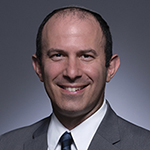 Joshua Milner is a Professor of Pediatrics and the Director of Allergy/Immunology and Rheumatology at Columbia University Irving Medical Center (New York). He is a pediatric allergist/immunologist and a physician-scientist. Joshua's work is centered on how genetic variation can help inform immunologic mechanisms, diagnosis, and care of all patients with allergic and immunologic disease. He is a member of the Board of Directors of the Federation of Clinical Immunology Societies.
Joshua Milner is a Professor of Pediatrics and the Director of Allergy/Immunology and Rheumatology at Columbia University Irving Medical Center (New York). He is a pediatric allergist/immunologist and a physician-scientist. Joshua's work is centered on how genetic variation can help inform immunologic mechanisms, diagnosis, and care of all patients with allergic and immunologic disease. He is a member of the Board of Directors of the Federation of Clinical Immunology Societies.
Consulting: 1E Therapeutics, Amgen.
Funding sources: Jeffrey Modell Foundation, National Institute of Allergy and Infectious Diseases, Pharming, Amgen.
Luigi Notarangelo
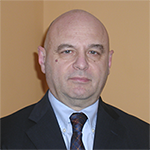 Luigi D. Notarangelo, M.D. (Bethesda, MD, USA), is an expert in inborn errors of immunity, with a special focus on the characterization of the clinical and molecular features of T cell immunodeficiencies due to hematopoietic or thymic defects. He has authored more than 600 manuscripts. He is a member of the National Academy of Medicine and of the Association of American Physicians. He has served as President of the European Society for Immunodeficiencies and of the Clinical Immunology Society. Beyond science, he loves baroque music, playing chess, and reading, and he is a strong supporter of the AS Roma football club.
Luigi D. Notarangelo, M.D. (Bethesda, MD, USA), is an expert in inborn errors of immunity, with a special focus on the characterization of the clinical and molecular features of T cell immunodeficiencies due to hematopoietic or thymic defects. He has authored more than 600 manuscripts. He is a member of the National Academy of Medicine and of the Association of American Physicians. He has served as President of the European Society for Immunodeficiencies and of the Clinical Immunology Society. Beyond science, he loves baroque music, playing chess, and reading, and he is a strong supporter of the AS Roma football club.
Staff
Elissa Hunter, Production Editor
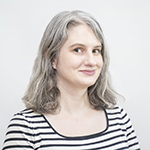 Elissa Hunter joined Rockefeller University Press (New York) in July 2020 after more than a decade of working as a copy editor and proofreader, most recently at Marvel Entertainment and The Culture Trip. She has a BS in journalism from University of Florida, an MLIS from Pratt Institute, and no idea how she ended up with two science degrees.
Elissa Hunter joined Rockefeller University Press (New York) in July 2020 after more than a decade of working as a copy editor and proofreader, most recently at Marvel Entertainment and The Culture Trip. She has a BS in journalism from University of Florida, an MLIS from Pratt Institute, and no idea how she ended up with two science degrees.
Meighan Schreiber, Managing Editor
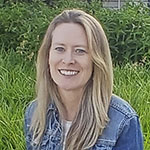 Meighan Schreiber (Rockefeller University, New York) has over a decade of experience with online peer review systems and running an editorial office through her service as a Managing Editor of Health Services Research, Health Research & Educational Trust's flagship publication and an official journal of Academy Health. Meighan was most recently the Managing Editor of Infection Control & Hospital Epidemiology, published by Cambridge University Press on behalf of The Society for Healthcare Epidemiology of America.
Meighan Schreiber (Rockefeller University, New York) has over a decade of experience with online peer review systems and running an editorial office through her service as a Managing Editor of Health Services Research, Health Research & Educational Trust's flagship publication and an official journal of Academy Health. Meighan was most recently the Managing Editor of Infection Control & Hospital Epidemiology, published by Cambridge University Press on behalf of The Society for Healthcare Epidemiology of America.
Advertisement




